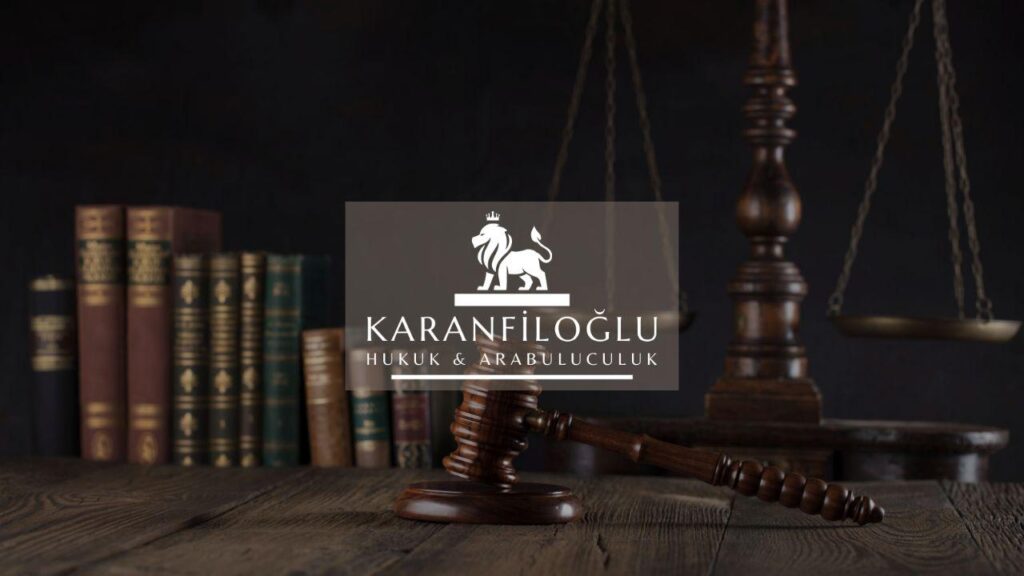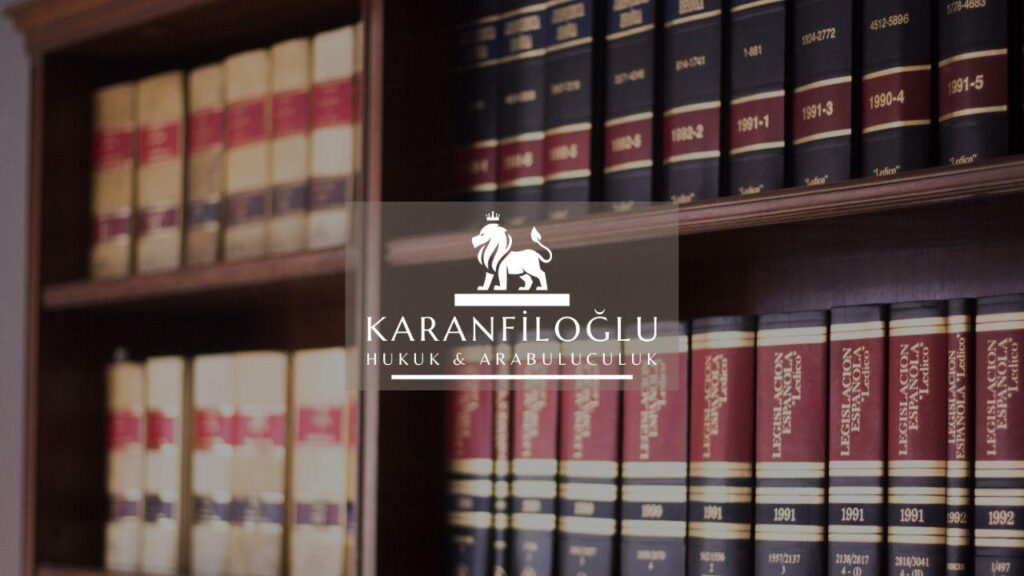Navigating neighbor disputes in Turkey requires a keen understanding of both legal avenues and practical steps to ensure harmonious resolutions. At Karanfiloglu Law Office, our experienced legal team is well-versed in handling such disputes under Turkish law, including but not limited to, the provisions of the Turkish Civil Code (Law No. 4721) Articles 683 and 737, which pertain to neighborhood rights and relations, and the Code of Obligations (Law No. 6098) Article 57, which addresses compensation for damages caused by nuisances. With strategic legal guidance, including mediation as encouraged by Article 35/A of the Mediation Law (Law No. 6325), we support clients in effectively managing and resolving conflicts with their neighbors. Whether it involves property boundaries, noise complaints, or other neighborly issues, Karanfiloglu Law Office is dedicated to safeguarding our clients’ best interests while promoting a peaceful community environment.
Common Legal Grounds for Neighbor Disputes in Turkey
Neighbor disputes in Turkey often stem from various common legal grounds such as boundary encroachments, excessive noise, and nuisance issues. According to Article 737 of the Turkish Civil Code (Law No. 4721), property owners are obliged to avoid any actions that may cause harm to their neighbors, including unreasonable noise and disturbances. Similarly, Article 57 of the Turkish Code of Obligations (Law No. 6098) allows individuals to seek compensation for damages resulting from nuisances caused by their neighbors. Additionally, disputes regarding shared spaces, like apartment building common areas, can arise under the provisions of the Property Ownership Law (Law No. 634). At Karanfiloglu Law Office, we often encounter these issues and provide tailored legal strategies to address and resolve them in compliance with Turkish regulations.
Another frequent cause of neighbor disputes involves boundary encroachments, where one party unlawfully extends their use or ownership over the land of another. Article 683 of the Turkish Civil Code (Law No. 4721) explicitly protects property owners’ rights to undisturbed possession of their land and provides legal remedies against encroachments. Additionally, trees and plants overhanging or encroaching onto a neighboring property may also lead to conflicts, as regulated under Article 739 of the Turkish Civil Code, which allows neighbors to request the removal of such intrusions. At Karanfiloglu Law Office, we assist clients by conducting thorough legal evaluations and providing actionable solutions, whether it’s negotiating with the offending party or initiating formal legal proceedings to re-establish property boundaries and secure our clients’ property rights.
Noise complaints are another prevalent area of contention among neighbors, often resulting from everyday activities such as loud music, renovations, or pets. Under Article 737 of the Turkish Civil Code, property owners must act in a manner that does not disrupt their neighbors’ peaceful enjoyment of their properties. Noise generated at unreasonable hours or exceeding acceptable limits can lead to legal disputes. In such cases, the affected party can seek legal recourse, including claims for cessation of the disturbance and possibly even compensation for harm caused. At Karanfiloglu Law Office, we have significant experience in handling noise-related disputes and offer comprehensive legal advice to clients, which may involve mediation or litigation. Our goal is to provide effective and pragmatic solutions that uphold our clients’ rights while fostering a cooperative neighborly relationship whenever possible.
Mediation and Negotiation as Effective Resolution Methods
Mediation and negotiation are often the most effective methods for resolving neighbor disputes in Turkey, fostering a cooperative rather than adversarial approach. In line with Article 35/A of the Mediation Law (Law No. 6325), mediation serves as a voluntary and confidential process where a neutral mediator assists the conflicting parties in reaching a mutually agreeable solution. This method not only saves time and cost compared to litigation but also promotes better long-term relationships between neighbors. At Karanfiloglu Law Office, our skilled mediators guide clients through constructive dialogue, aiming to resolve issues such as property boundaries, noise disturbances, and other common neighborhood conflicts without escalating to court. By prioritizing mediation and negotiation, we help clients achieve amicable settlements while protecting their legal rights and fostering community harmony.
Engaging in mediation or negotiation involves several key steps to ensure that the resolution process is fair and constructive. Initially, it is crucial to gather and present all relevant information and documentation concerning the dispute, such as property deeds, noise records, or any previous communications between the parties. During mediation sessions, both sides are encouraged to openly discuss their concerns and desired outcomes, often leading to a better understanding of each other’s perspectives. This transparent exchange is facilitated by the mediator, who remains neutral while guiding the conversation toward common ground and viable solutions. At Karanfiloglu Law Office, we emphasize the importance of entering these discussions with a willingness to compromise and a focus on long-term neighborhood harmony. Our experienced mediators ensure that every step complies with the legal requirements outlined in Turkish law, thus providing a solid foundation for a legally binding settlement agreement if one is reached.
If mediation or negotiation fails to yield a satisfactory agreement, other legal remedies are also available. Clients might consider filing a lawsuit for damages or seeking an injunction to prevent continuance of harmful actions, as guided by Article 57 of the Turkish Code of Obligations (Law No. 6098) and related provisions in the Turkish Civil Code (Law No. 4721). In such cases, our proficient litigators at Karanfiloglu Law Office are prepared to represent clients vigorously in court, ensuring that their rights are protected and just compensation is sought. Regardless of the path chosen, our priority is to provide comprehensive legal counsel, tailored to the unique circumstances of each dispute, thereby helping clients navigate the complexities of Turkish law while striving for the most favorable outcome.
Role of Turkish Courts in Neighbor Dispute Settlements
When mediation and direct negotiation fail to resolve a neighbor dispute, the role of the Turkish courts becomes paramount. Under the Turkish Civil Code (Law No. 4721), particularly Articles 684-686, the courts have broad jurisdiction to adjudicate disputes involving property boundaries, easements, and shared amenities. They can issue orders to cease nuisances based on Article 737, which protects individuals from unlawful interference by neighbors. Additionally, in cases involving significant damage or loss due to a neighbor’s actions, the courts may award compensation under Article 57 of the Code of Obligations (Law No. 6098). The specialized knowledge and procedural rigor of the judiciary ensure that disputes are examined thoroughly, with all evidence and testimonies considered to reach a fair and legally sound resolution. At Karanfiloglu Law Office, we provide robust legal representation to navigate these complex legal landscapes, ensuring our clients’ rights are fiercely protected throughout the litigation process.
In court proceedings for neighbor disputes, the initial step often involves filing a lawsuit through a petition, which should thoroughly detail the nature of the dispute, the alleged violations, and the remedy sought by the complainant. According to the Civil Procedure Code (Law No. 6100), the court may also impose temporary measures to prevent further harm or nuisance while the case is pending, ensuring that the situation does not deteriorate further. During the litigation, expert opinions may be sought for technical assessments related to property boundaries, noise levels, or environmental impact, as stipulated under Article 266 of the Civil Procedure Code. At Karanfiloglu Law Office, our legal team meticulously prepares such petitions and advocates vigorously during court hearings, aiming to present compelling evidence and well-founded arguments that support our clients’ positions, paving the way for a favorable judgment.
Once a verdict is reached in a neighbor dispute case, the enforcement of the court’s decision plays a crucial role in resolving the conflict effectively. According to Law No. 2004 on Enforcement and Bankruptcy, the judgment rendered by the court must be complied with promptly. Should any party fail to adhere to the court’s orders, enforcement proceedings may be initiated to ensure compliance. This could involve mandatory actions, such as the removal of an unlawful structure or cessation of a nuisance. At Karanfiloglu Law Office, we assist clients not only during the litigation phase but also in the post-judgment enforcement process, ensuring that the court’s decision is implemented fully and any non-compliance is addressed swiftly and efficiently. Thus, our comprehensive legal services cover all aspects of neighbor disputes, from initial consultation to the final enforcement of judgments, providing our clients with holistic support to uphold their rights and achieve a peaceful resolution.
Disclaimer: This article is for general informational purposes only and you are strongly advised to consult a legal professional to evaluate your personal situation. No liability is accepted that may arise from the use of the information in this article.







